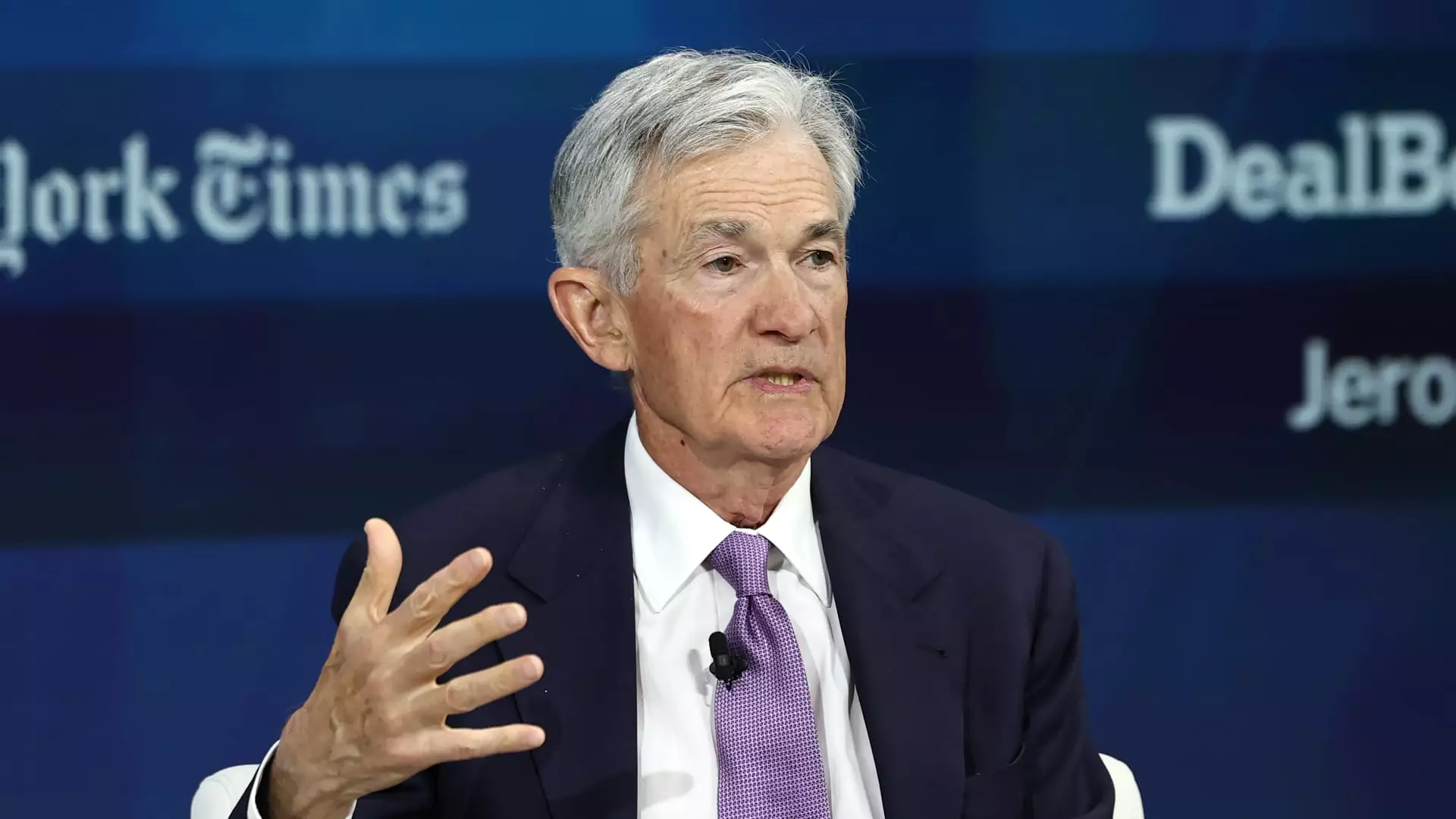The independence of the Federal Reserve has been a cornerstone of American monetary policy, ensuring decisions regarding interest rates and financial stability are made based on economic indicators rather than political pressures. However, as political landscapes shift, particularly with the incoming administration of President-elect Donald Trump, concerns about the potential politicization of the central bank have surfaced. Jerome Powell, the current chair, addressed these worries during a recent interview, reinforcing the importance of maintaining the Fed’s autonomy from political interventions. The crux of the matter lies in whether the already established safeguards can withstand external pressures – a topic that deserves careful examination.
Powell articulated confidence in the structural frameworks embedded in the legislation that founded the Federal Reserve. These mechanisms are designed to shield the bank from political meddling, thus ensuring that economic decisions prioritize national benefits over transient political goals. He emphasized the importance of making choices focused on “maximum employment and price stability for the benefit of all Americans.” This perspective raises critical insights about the balance of power within the executive and legislative branches, particularly concerning their influence on a body designed to operate independently of political whims.
The emphasis on autonomy is crucial for ensuring that the Fed can respond flexibly to economic changes. By removing political motivations from the equation, Powell argues that the Fed can make more rational, objective decisions, a view that both economists and policymakers often support. However, history has shown that when administrations prioritize short-term political gains, institutions can become vulnerable, and this raises pertinent questions about the resilience of any safeguards in place.
Recent speculation suggests that Trump may attempt to install a “shadow chair”—a figure who could ostensibly pull strings behind the scenes to influence Fed decisions. While this concept sounds sensational, it illustrates real anxieties about presidential overreach into the central bank’s operations. Powell’s reassurance about Congress’s commitment to preserving the Fed’s independence is encouraging, yet the reality of Congressional dynamics must also be considered. In the past, there have been instances where political allegiance swayed decision-making processes in various government entities, leading to skepticism among observers about the Fed’s vulnerability.
Many economists stress that the Fed’s operational detachment from political agendas is essential for maintaining investor confidence and economic stability. Political interference could result in erratic financial policies, which would ultimately harm the economic environment, leading to instability and unpredictability in markets.
Currently, market analysts anticipate that the Federal Open Market Committee (FOMC) will soon decide to lower interest rates to stimulate economic growth, given the backdrop of increasing unemployment rates and inflationary pressures. As Powell indicated, market probabilities suggest a significant likelihood—around 75%—that a rate cut could happen in the near term. The juxtaposition of potential Fed actions and impending political influence poses a complex challenge. Investors, while optimistic about growth strategies, remain wary of shifts that could come from a politicized monetary policy under Trump.
In light of Powell’s assessments, it appears that the Fed is positioned to navigate these turbulent waters effectively. For the short term, Powell’s suggestion of a patient approach is prudent. However, one must ask if such patience can persist amid external political pressures or if it might buckle under the weight of partisan agendas.
Powell’s statements and the current state of the economy signal the need for a more profound discussion about the implications of Fed independence – both historically and in terms of future economic policymaking. Successful navigation of these challenges will require balanced partnerships between political leaders and economic experts to foster an environment conducive to sustained growth.
While Powell reassures the public of the Fed’s resilience amid potential political incursions, the concern over the central bank’s independence shines a light onto the complexity of maintaining a healthy economy. As political pressures mount, vigilance and commitment from both the Fed and Congress will be paramount to ensure that American monetary policy remains firmly rooted in economic realities, rather than fleeting political objectives. The future of financial stability may very well depend on the respect and maintenance of Fed independence.

